News
Post-COVID diving in Sharm el Sheikh: what do the reefs look like after four months with no divers or boats?
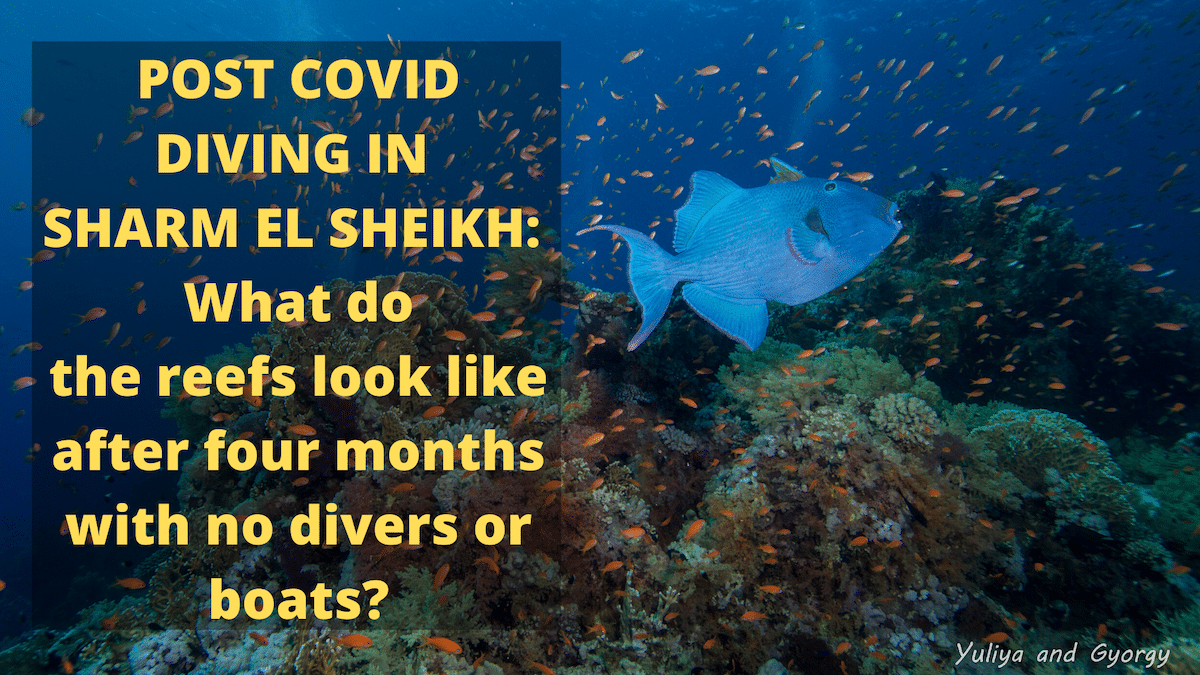
For the first time in four months, I descended beneath the surface at the local area dive site Temple, Sharm el Sheikh.
Finally!
It was a little strange at first; the silence, the equalizing and being weightless once more but after around 30 seconds, it felt good to be in the place that I call home, beneath the rippling waters of the Red Sea.
On 9th July 2020 at 16:00 hours, our home for the next 2 nights, liveaboard South Moon (Sea Queen Fleet) departed Travco marina for two and a half days diving. It was the first safari boat to leave on charter from Sharm since the COVID pandemic started. On board were the Crew, guide Valeria, Sea Queen Operations Manager Doro, and ten overly emotional multinational residents of Sharm el Sheikh. Despite the crazy number of dives held (many were instructors) and the combined number of years diving (exceeding 200 years between us), the excitement onboard was unprecedented (to use a phrase from this pandemic in a positive light).
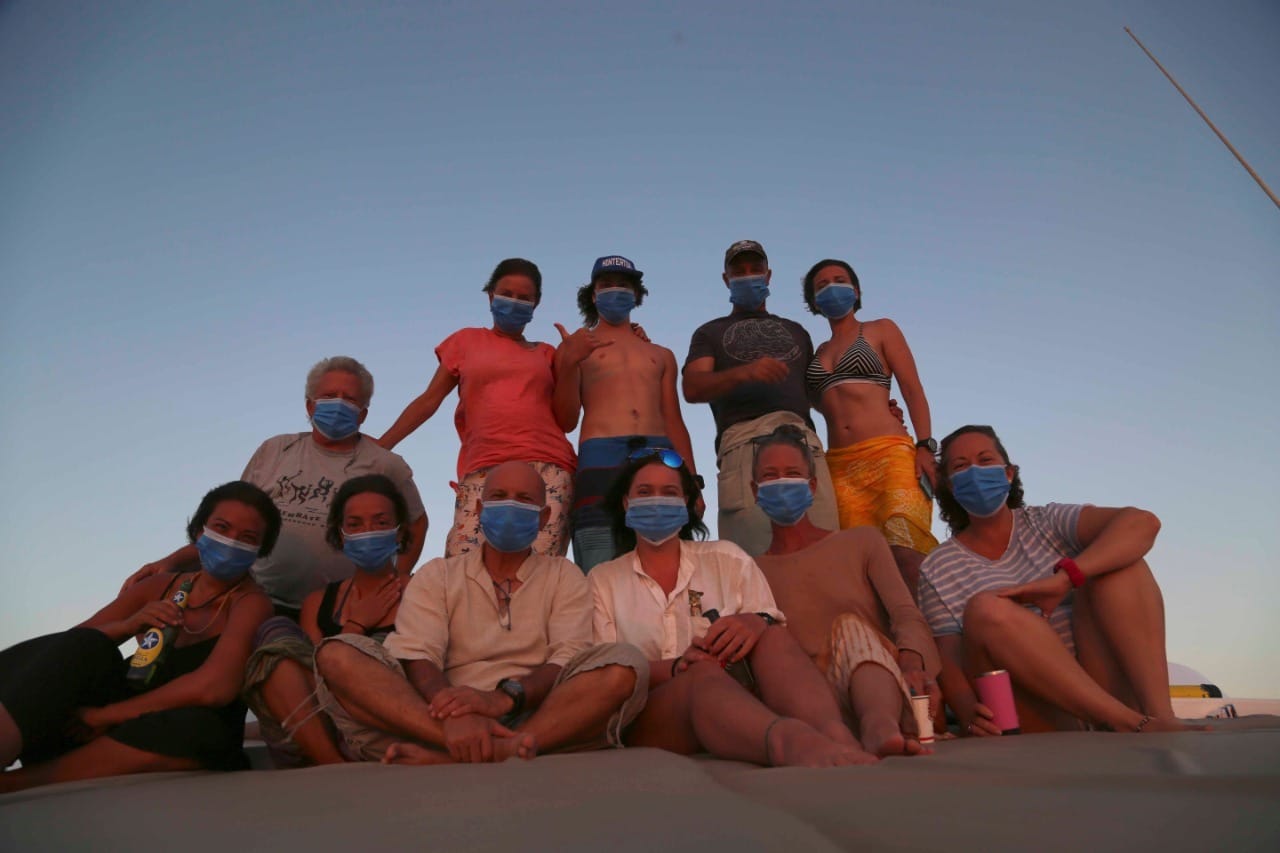
Photo: Thomas Hartwell
This was to be a trip of a lifetime. To dive Ras Mohamed National Park after four months, where even the sea was locked down. What would we see? Would there be an improvement? Sharks everywhere?
Firstly, after paperwork and briefings that included all the necessary COVID rules and regulations, we decided on a check dive in the local area just to test our gear and make sure that we remembered how to dive. The dive was amazing. It was so nice to see many of the Red Sea usual suspects. My buddy, Doro and I both wondered if some of the fish had perhaps even seen a diver before as one moray eel was quite a small juvenile and seemed a little confused by our presence.
After the dive, it was time for dinner. Chef Fathi provided us with a tasty meal including vegetarian options in a socially distanced manner. With bellies full, it was time for bed as we planned to be in the water at six the following morning.
Most of us were awake at five, sipping coffee and having a cookie or four. Briefing done it was off to dive one of the top ten dive sites in the world, Shark & Yolanda reef.
We entered the water at Shark reef and there was an explosion of fish. Shark reef is very well known for its large schools of fish in the summer months, but this outdid anything that I have ever seen before. We were met by huge schools of snapper, jackfish, unicorn fish and batfish. With just enough current to move us along, we headed to Yolanda reef. The coral garden here is always fabulous but again, it seemed better and more vibrant than ever before especially when there was a large school of juvenile parrot fish escorting us.
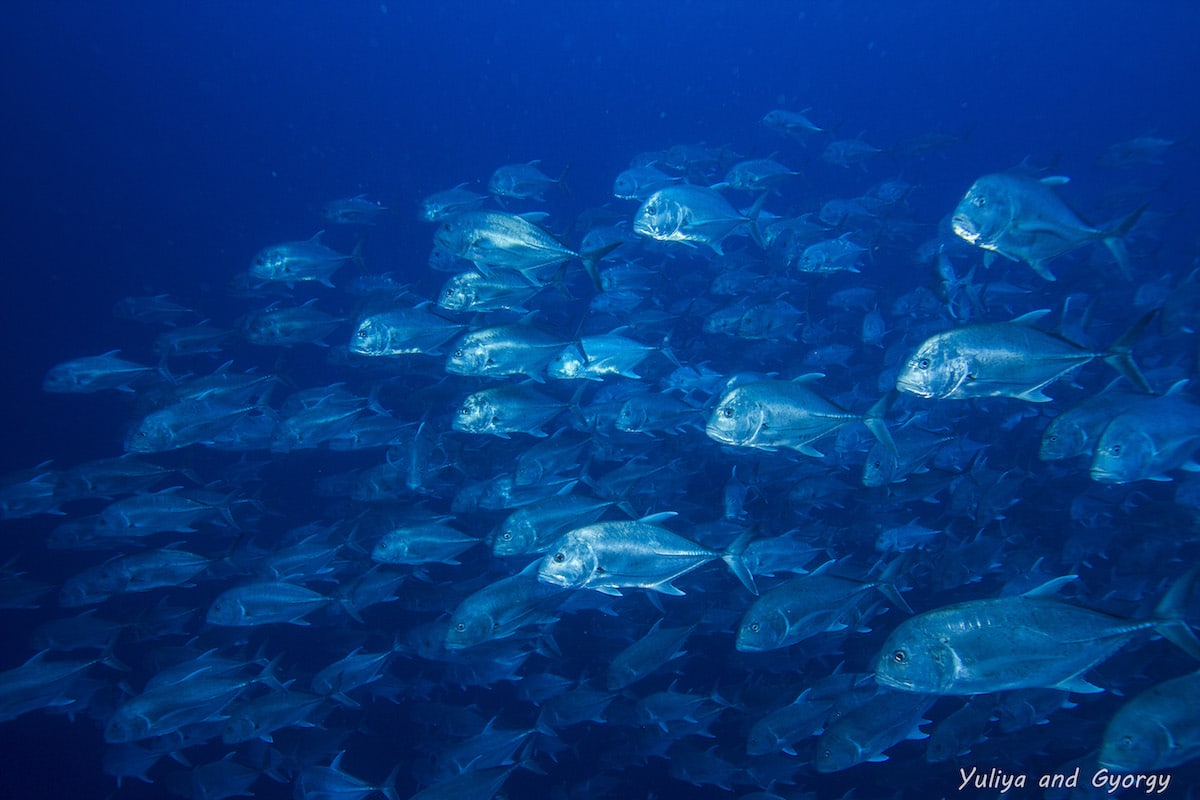
Photo: Yuliya Honcharskaya & Gyorgy Pall
All too quickly, we reached our one-hour maximum dive time and it was time to surface. There was nothing else for it, we would have to dive Shark and Yolanda reef again. During the trip we dived this unique reef five times consecutively, we just could not get enough. Sightings on the following dives included: barracuda, shark size tuna, mating feathertail stingrays, eagle rays, turtles, huge napoleon wrasse in addition to the large schools that we enjoyed on every single dive.
There was only one dive left for this trip, so where did we want to dive? To be very honest we were a little torn and very much wanted to dive Shark and Yolanda reef again, but we were still a little curious as to what the other reefs were like. In the end, it was decided that we would complete our final dive at Jackfish Alley.
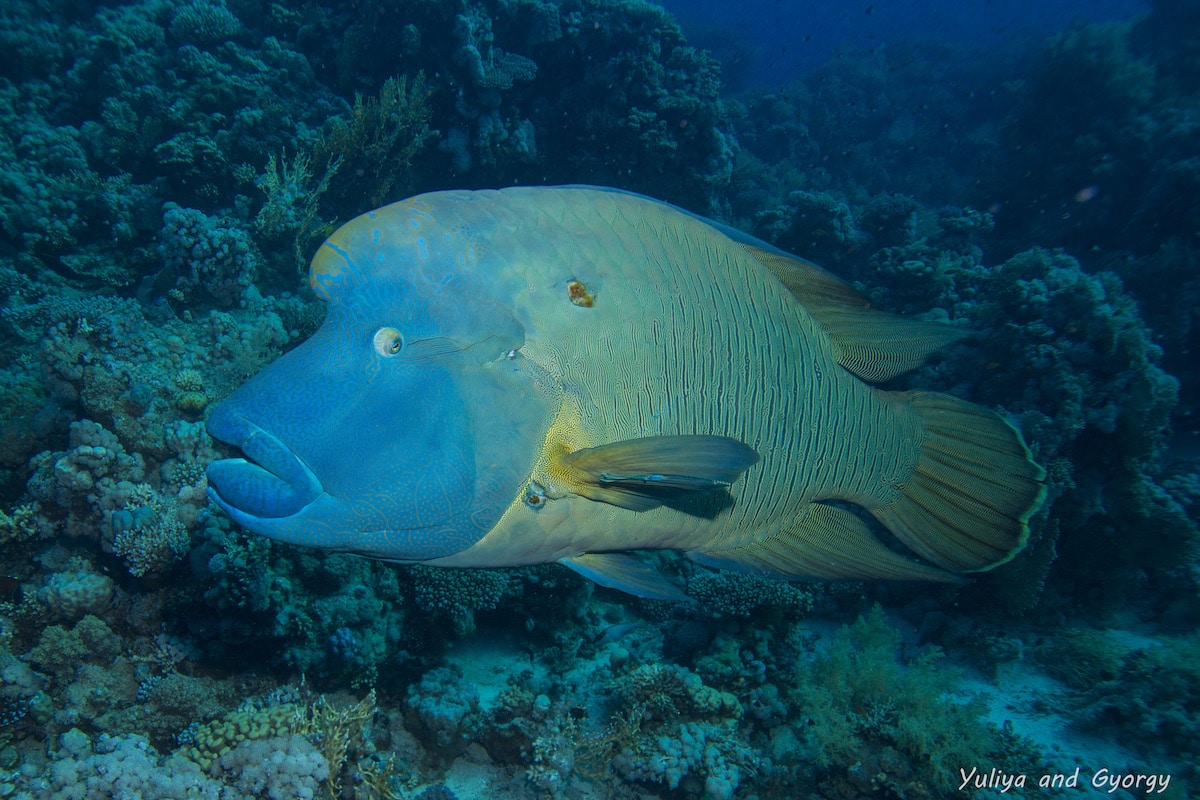
Photo: Yuliya Honcharskaya & Gyorgy Pall
WOW! It is quite difficult to put into words how amazing this dive was. We skipped the caves as we wanted to spend more time on the plateau where the life was likely to be and we certainly did not regret our decision. As we descended, we were welcomed by a large school of juvenile parrot fish (even larger than the school on Yolanda reef). Drifting along the plateau we swam with at least twenty separate schools of different types of jackfish; from African Pompano (one of my favourites as I think they look like teddy bears) to Giant Trevally which look like they should be related to dinosaurs with their armor-plated scales. I know that it is a cliché, but it was like swimming in an aquarium. Again, it was time for another safety stop and to end the last dive of the trip.
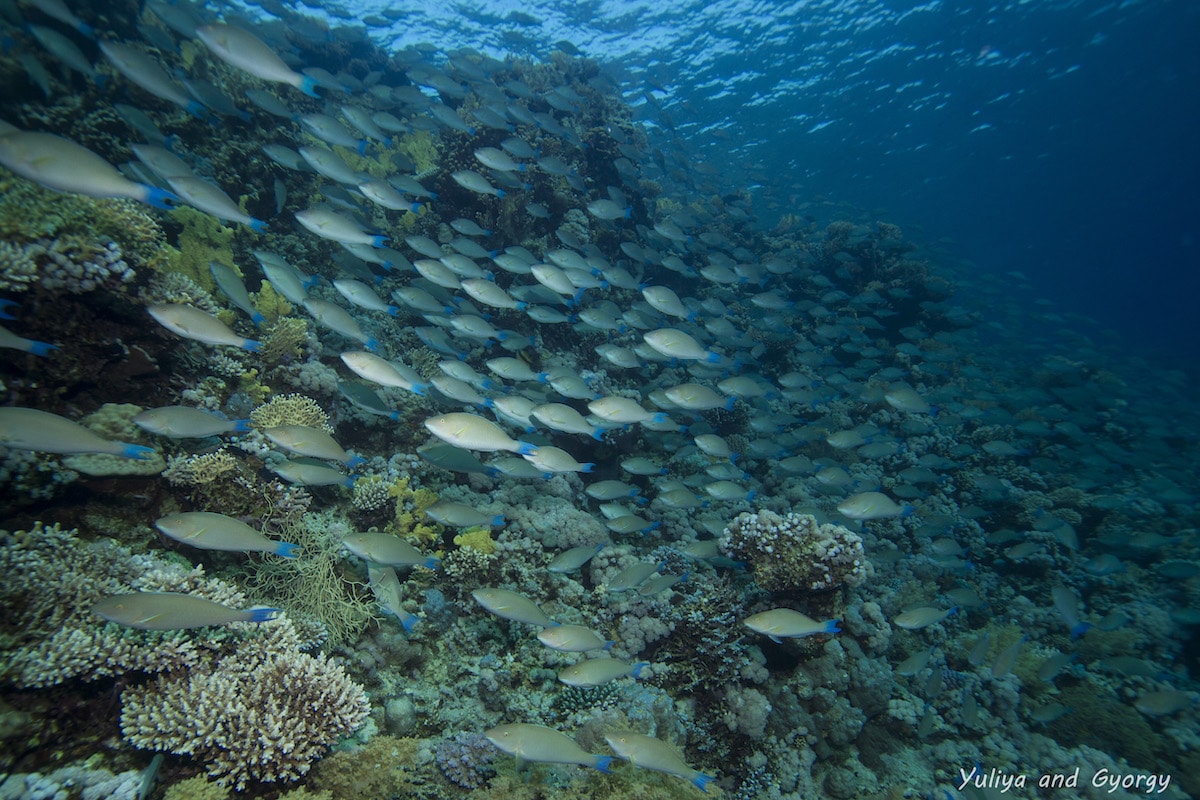
Photo: Yuliya Honcharskaya & Gyorgy Pall
We headed back to Travco marina with memories that will last a lifetime and feelings of gratitude that will get us through the upcoming months.
Back in my home office today, I was more motivated than ever to prepare Anthias Divers for our upcoming COVID safety inspection which will allow us to reopen soon and in turn show more land based divers the fabulous dives that we have to offer here in Sharm el Sheikh.
I would like to say a massive thank you to Doro, Valeria, the crew of South Moon, and all my fellow divers onboard for a fabulous time. Safety was paramount during the entire trip but did not hinder the enjoyment at all. I don’t think that this trip is something that I will ever forget.
Interested in completing a northern itinerary liveaboard in Sharm el Sheikh? Email contact@seaqueens.com or visit their website www.seaqueens.com for more information.
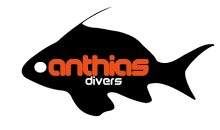 Also, don’t forget to follow Anthias Divers Facebook page for updates on when the friendliest dive centre in town will be open for land-based trips.
Also, don’t forget to follow Anthias Divers Facebook page for updates on when the friendliest dive centre in town will be open for land-based trips.
Gear News
Introducing the TR-80, IR-50 and CS-30 Regulators from DYNAMICNORD

Whether you are a beginner or a professional diver – with the three new main regulators from DYNAMICNORD, everyone will find their favourite regulator. They all look super stylish.
Excellent performance with the TR-80
Quality and performance are the be-all and end-all for regulators. It is not for nothing that the TR stands for Tec Reg. The innovative design of the TR-80 guarantees absolute reliability – even in ice-cold waters.

Perfect breathing effort at 0.8 J/l / certified for diving in waters below 10 degrees / structural design made of solid brass for best cold protection / membrane-compensated design with dry seal of the first stage / reduced exhalation effort thanks to optimized exhalation membrane and bubble deflector / adjustable Venturi (dive/predive) and adjustment knob for individual inhalation comfort / innovative design of the front cover prevents free-flow in strong currents or when diving with scooters / design made of sandblasted brass, matt chrome finish / 2 HP and 4 LP outlets / mouthpiece made of high-quality, anti-allergic silicone for maximum comfort.


Amazing underwater adventures with the IR-50
The IR-50 is the top regulator for advanced and experienced divers. Natural breathing is the essence of this regulator.

Ideal breathing effort at 0.8 J/l /certified for diving in waters below 10 degrees / compensated membrane / adjustable venturi (dive/predive) and adjustment knob for individual inhalation comfort/ outlet valve and deflector for minimum exhalation effort and reduction of bubbles on the face / design made of sandblasted brass, matt chrome finish / 2 HP and 4 NP outlets / mouthpiece made of high-quality, anti-allergic silicone for maximum comfort.


The Workhorse – our CS-30
For diving centres and diving beginners – the workhorse stands for strong construction, reliability and robustness. Perfect for your training.

Optimal breathing effort at 0.8 J/l /recommended for diving in waters above 10 degrees / non-compensated piston / adjustable venturi (dive/predive) / outlet valve and deflector for minimum exhalation effort and reduction of bubbles on the face / design made of sandblasted brass, matt chrome finish / 1 HP and 3 NP outlets / mouthpiece made of high-quality, anti-allergic silicone for maximum comfort.


Octopus OP-30
The OP-30 is the ideal addition to all DYNAMICNORD regulators. It is identical in construction to the CS-30.

The TR-80, IR-50, CS-30 (DIN & INT) regulators and the Octopus OP-30 are available from DYNAMICNORD dealers and in the online store.
DYNAMICNORD – Your Outdoor Companion.
Marine Life & Conservation
Paul Watson Released as Denmark Blocks Japan’s Extradition Bid

Renowned anti-whaling activist Paul Watson has been released from custody in Greenland after spending five months in detention. Denmark’s Justice Ministry rejected Japan’s request for his extradition, citing insufficient guarantees that his time already served in custody would be credited against any potential sentence.
The 74-year-old Canadian-American was arrested on July 21 in Nuuk, Greenland’s capital, when his ship docked to refuel. His arrest was based on a 2012 Japanese warrant related to a 2010 encounter in Antarctic waters. Japan alleged Watson obstructed operations and caused damage to a whaling research ship during efforts to disrupt illegal whaling. Watson has consistently denied these claims, maintaining his commitment to marine conservation.
Denmark, which oversees extradition matters for Greenland, concluded that while the legal conditions for extradition were met, the lack of assurances from Japan regarding time-served credit made extradition untenable.
In a video shared by his foundation, Watson expressed gratitude and relief, saying, “After five months, it’s good to be out… and good to know they’re not sending me to Japan.” He added that the most difficult part of his time in custody was being separated from his two young sons.
Watson is a pioneering figure in marine conservation, known for founding the Captain Paul Watson Foundation in 2022 after decades of activism with the Sea Shepherd Conservation Society. His bold efforts to defend marine life have earned him widespread support, including from celebrities and conservationists. His work has also been featured in the acclaimed reality TV series Whale Wars.
Watson’s lawyer, Jonas Christoffersen, praised the decision, stating, “We are happy and relieved that Paul Watson is now free.” He added that Watson is eager to reunite with his family and continue his vital work.
The arrest occurred while Watson’s vessel, the M/Y John Paul DeJoria, was en route to the North Pacific with a team of 26 volunteers to intercept a Japanese whaling ship. His foundation described the arrest as politically motivated and emphasized that Watson’s actions were focused on ending illegal whaling practices.
Japan resumed commercial whaling in 2019 after leaving the International Whaling Commission, asserting that whale meat is a cultural tradition. Conservationists, however, continue to challenge these practices, highlighting their impact on marine ecosystems.
Despite the challenges, Watson remains steadfast in his mission to protect marine life and bring attention to whaling practices. His dedication to ocean conservation has made him a globally respected advocate for the environment.
-

 News2 months ago
News2 months agoIconic SS United States to become the World’s Largest Artificial Reef
-

 News3 months ago
News3 months agoBook Review – 52 Assignments: Underwater Photography
-

 Gear News3 months ago
Gear News3 months agoDYNAMICNORD – New German diving brand enters the British market
-

 News3 months ago
News3 months agoExploring Cenote El Pit: A Diver’s Dream
-

 Gear News3 months ago
Gear News3 months agoTry BARE drysuits (and maybe even win one!) this Friday with Sea & Sea at North West Dive Fest
-

 Marine Life & Conservation3 months ago
Marine Life & Conservation3 months agoBook Review: Coral Triangle Cameos
-

 Blogs2 months ago
Blogs2 months agoDive the Egyptian Red Sea this Autumn with Regaldive
-

 News3 months ago
News3 months ago2024 Ocean Art Underwater Photo Competition Announced















